Quantifying the biodiversity and biomass of mesopredatory reef fishes on Laamu Atoll
2015
Jennifer House (MSc Marine Environmental Management - University of York)
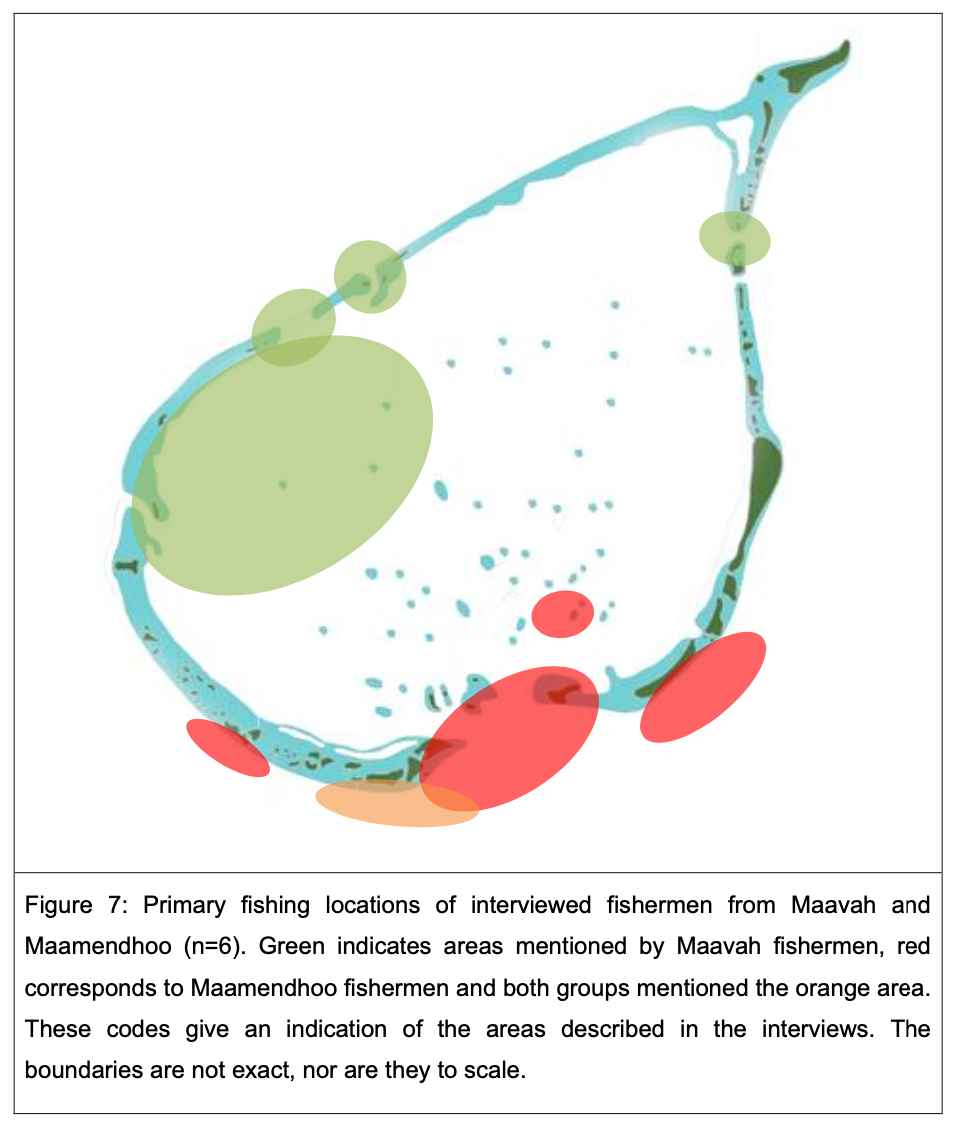
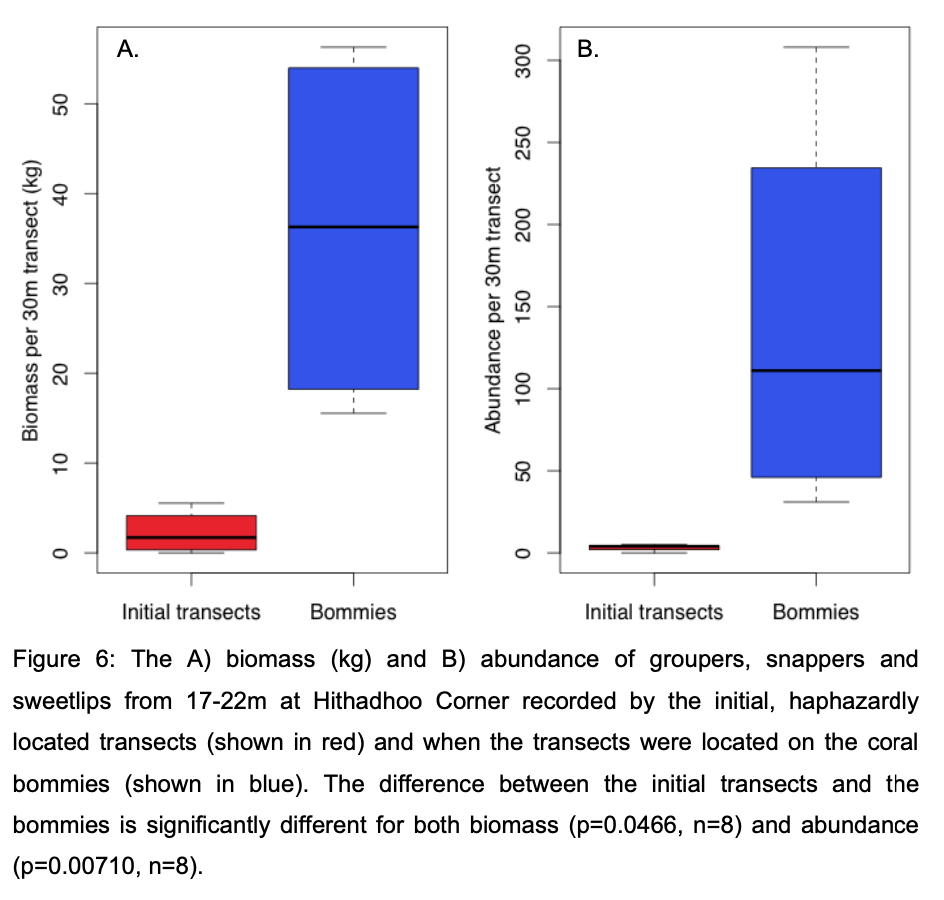
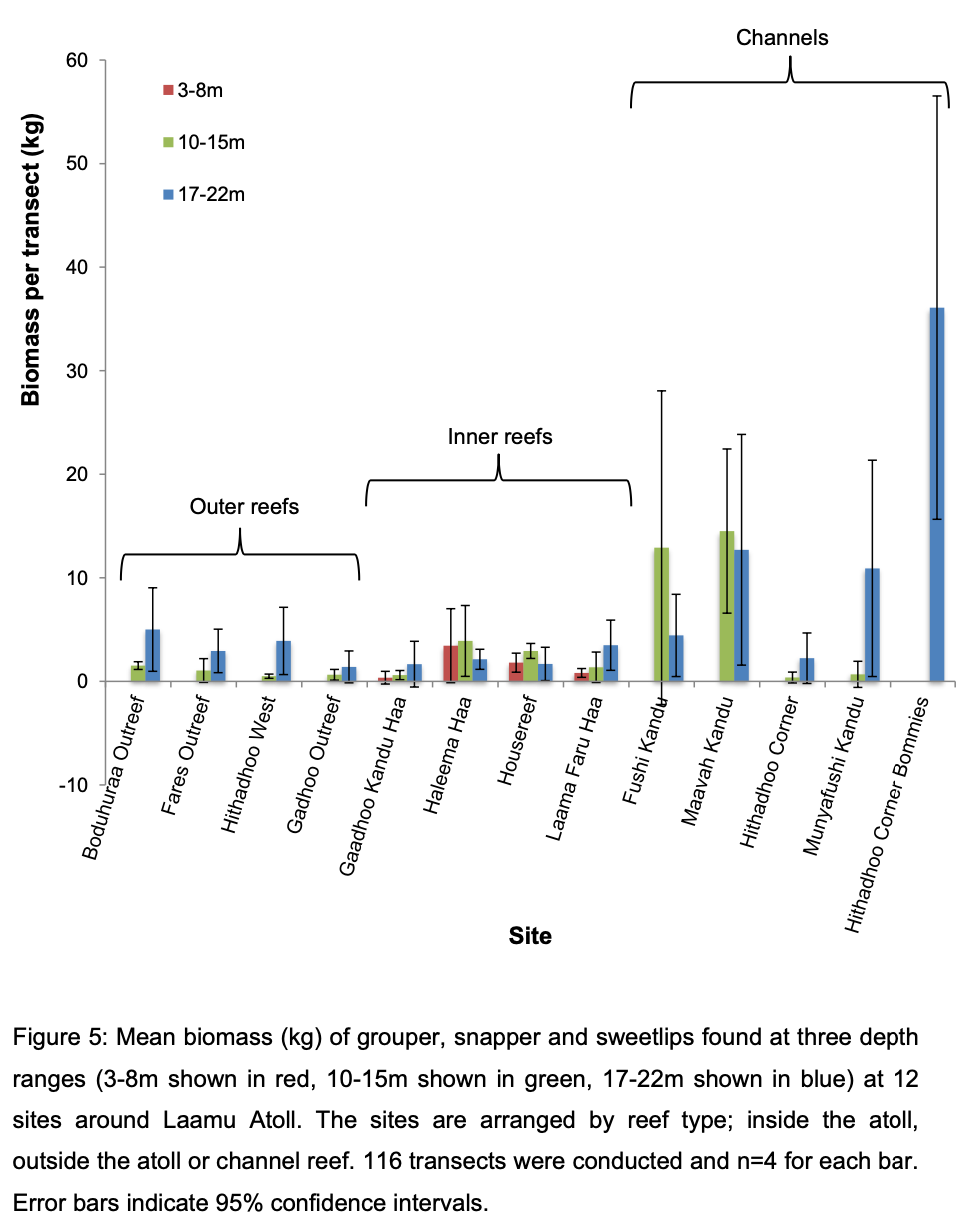
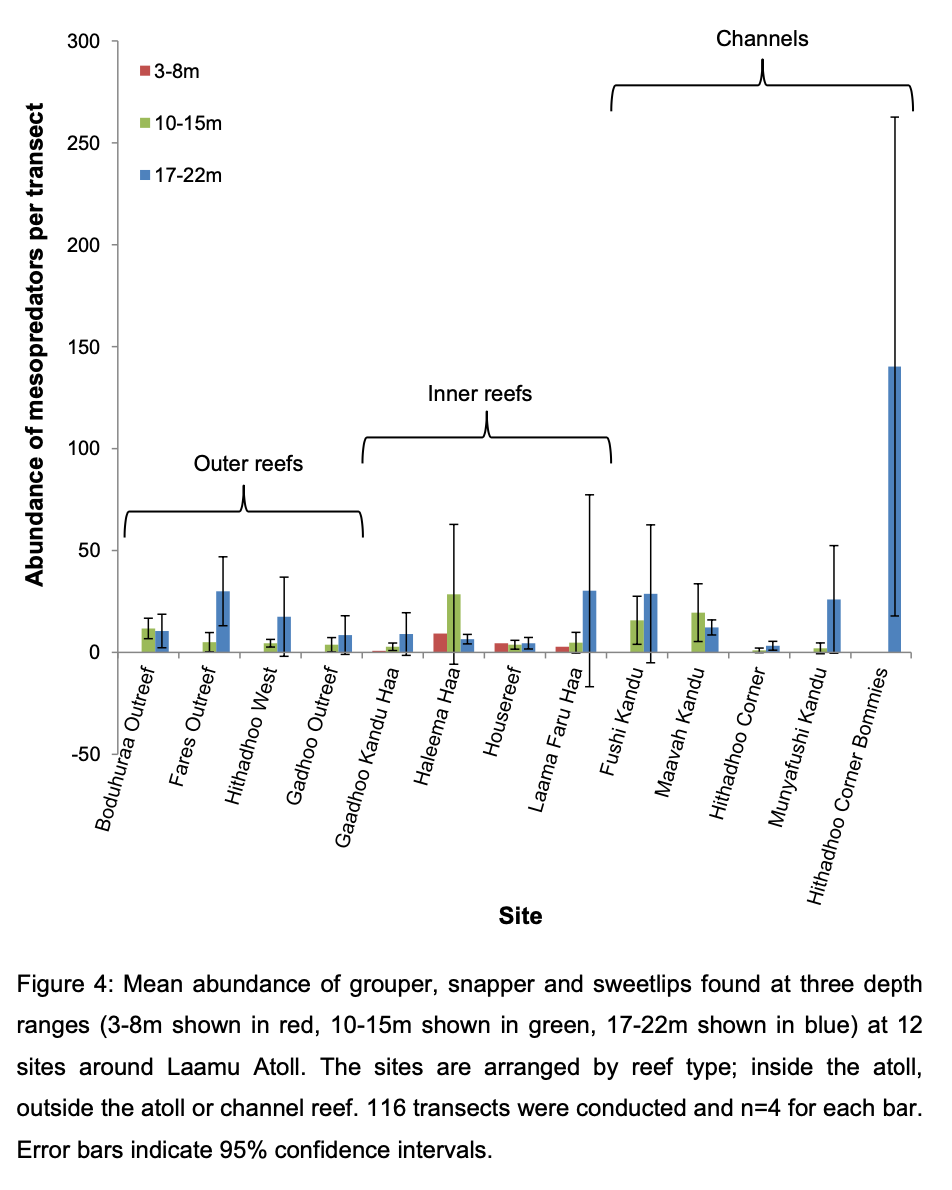
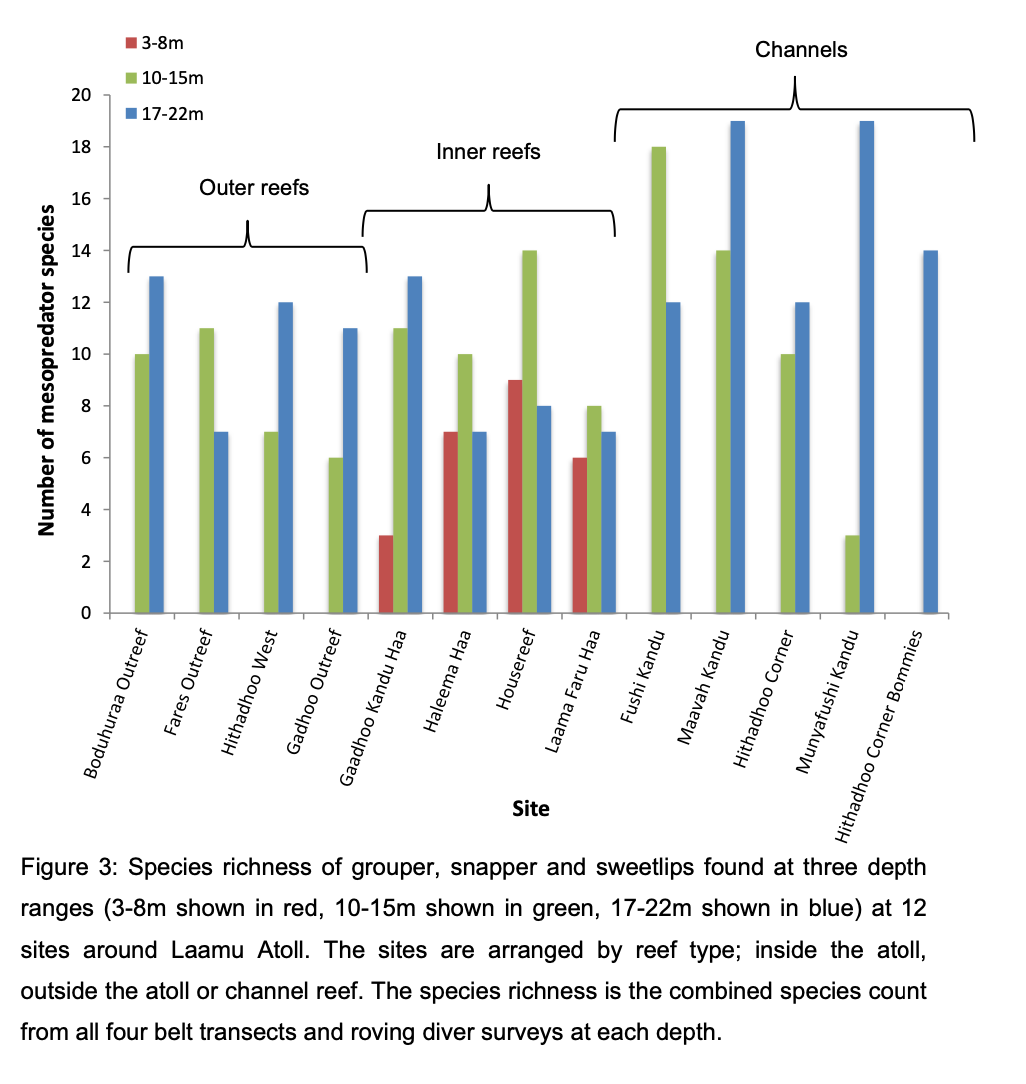
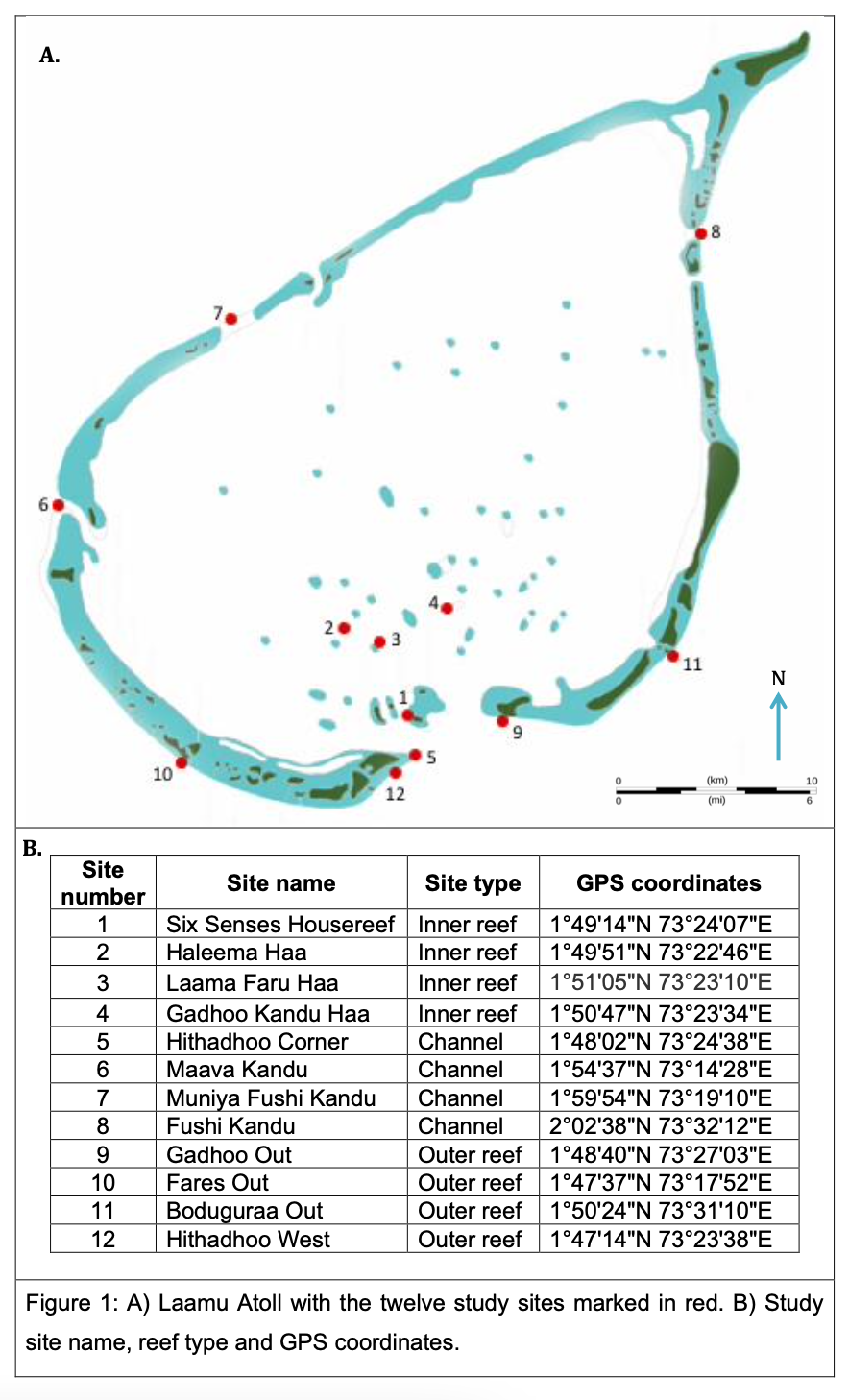
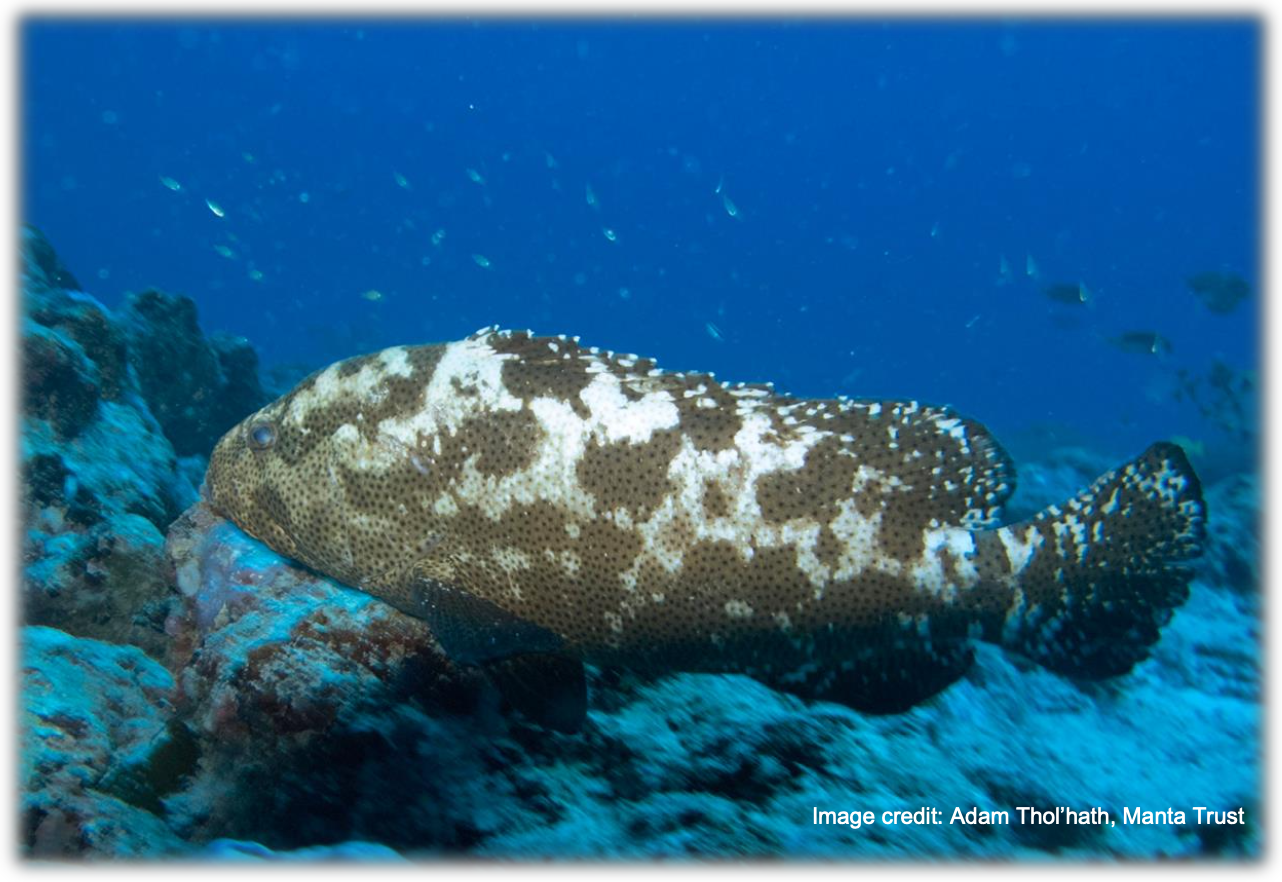
Summary: This study focuses on the population status and pressures faced by mesopredatory reef fishes, including groupers, snappers, and sweetlips, in Laamu Atoll, Maldives. Underwater surveys revealed a diverse range of these fishes, including species at risk. Factors such as reef type, depth, and current strength were found to influence mesopredator abundance, but there is still unexplained variability. Hithadhoo Corner was identified as an ecologically significant site. Local fishermen reported declines in reef fish species, emphasising the need for improved fisheries management. The study calls for enhanced monitoring of targeted species and ecological factors, as well as the establishment of a protected area at Hithadhoo Corner.
Abstract
“The ecological importance of mesopredators is increasingly recognized and has been demonstrated on coral reefs. However, they are particularly vulnerable to overexploitation by commercial and artisanal fisheries. The Maldivian grouper fishery is already overfished but it is not known how mesopredatory reef fishes, including groupers, are faring outside of the central atolls. This study provides baseline population data for grouper, snapper and sweetlips populations in Laamu Atoll and explores the pressures they face. Underwater Visual Census surveys conducted by scuba divers revealed a high biodiversity of groupers, snappers and sweetlips on Laamu’s reefs, including five nearly threatened or vulnerable grouper species. Key factors have been identified which influence mesopredator abundance (the type of reef, depth and current strength) but high levels of unexplained variability within and between sites suggests that additional variables must be included in future research. Hithadhoo Corner was identified as a particularly ecologically significant site, due to the high biomass of mesopredatory fish present on coral bommies. Interviews with local fishermen suggest that several reef fish species are already in decline, supporting the need for improved fisheries management. As a result of these findings, I call for improved monitoring of commercially targeted species and the ecological factors that influence them, and recommend that more robust fisheries management be enacted, including designation of a protected area at Hithadhoo Corner.”
Author Affiliations
University of York
The Manta Trust
